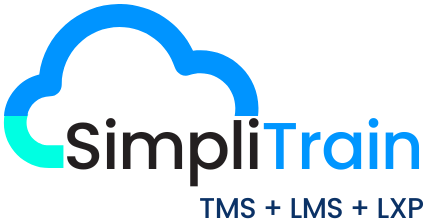Developing Essential Soft Skills for Software Professionals: Why They Matter and How to Cultivate Them
Enhance your software team’s performance by prioritizing soft skills development alongside technical expertise.
In the fast-paced world of software development, technical skills often dominate the spotlight. However, the importance of soft skills—such as communication, teamwork, problem-solving, and adaptability—cannot be overstated. As software professionals increasingly work in collaborative environments, developing these skills is essential for personal growth and career advancement.
According to a survey by LinkedIn, 92% of talent professionals say that soft skills are equally or more important to hire for than hard skills. Moreover, 89% believe that bad hires typically lack the necessary soft skills. This highlights the critical role that soft skills play in the success of both individuals and organizations.
In this article, we’ll delve into why soft skills matter for software professionals and provide actionable strategies to cultivate them within your team.
1. The Importance of Soft Skills in Software Development
Soft skills enhance the effectiveness of technical abilities, enabling software professionals to collaborate more efficiently and communicate ideas clearly.
Effective Communication
Effective communication minimizes misunderstandings and enhances the efficiency of project workflows.
- Articulate Ideas Clearly: Software developers must explain complex technical concepts to both technical and non-technical stakeholders.
- Active Listening: Understanding client needs and team feedback is crucial for project success.
“The biggest problem in communication is the illusion that it has taken place.”
— George Bernard Shaw
Collaboration and Teamwork
Software projects often require input from multiple team members, including developers, designers, and project managers.
- Cross-Functional Teams: Collaborating effectively leads to cohesive working environments and successful project outcomes.
- Conflict Resolution: Navigating differing opinions and finding common ground is essential.
Adaptability
The tech landscape is always evolving.
- Embrace Change: Being adaptable helps professionals learn new technologies and methodologies.
- Overcome Challenges: Flexible team members can adjust to shifting project requirements and timelines.
A study by McKinsey & Company found that organizations with agile and adaptable teams are 1.5 times more likely to outperform their competitors.
2. Identifying Key Soft Skills for Software Professionals
Certain soft skills are particularly valuable in the software industry.
Critical Thinking and Problem-Solving
Analyzing problems from different angles and developing creative solutions is crucial.
- Innovative Thinking: Drives innovation and improves code quality.
- Troubleshooting: Efficiently identifies and resolves issues.
Time Management
Managing time effectively ensures deadlines are met and reduces stress.
- Prioritization: Focus on high-impact tasks.
- Efficiency: Optimize workflows to enhance productivity.
Emotional Intelligence
Understanding and managing one’s emotions and those of others.
- Empathy: Improves team dynamics and client relationships.
- Self-Awareness: Identifies personal strengths and acknowledges areas for growth.
“Emotional intelligence is a key factor in professional success.”
— Daniel Goleman, Psychologist and Author
3. Strategies for Developing Soft Skills
Here are effective strategies for fostering soft skills within your software team:
Incorporate Soft Skills Training into Your LMS
Utilize your Learning Management System (LMS) to offer courses focused on communication, teamwork, and emotional intelligence.
- Interactive Modules: Engage learners with real-world scenarios and role-playing exercises.
- Personalized Learning Paths: Customize training to align with each individual’s unique needs and career aspirations.
Encourage Team-Building Activities
Organize exercises that promote collaboration and trust.
- Hackathons: Foster creativity and teamwork under time constraints.
- Workshops and Group Challenges: Enhance problem-solving and communication skills.
A report by Gallup shows that highly engaged teams show 21% greater profitability.
Promote an Open Feedback Culture
Create an environment where team members feel comfortable giving and receiving feedback.
- Regular Feedback Sessions: Schedule one-on-one meetings to discuss performance and development.
- 360-Degree Reviews: Gather feedback from peers, subordinates, and supervisors.
Implement Pair Programming
Pair programming brings two developers together at a single workstation to collaborate on code in real-time.
- Knowledge Sharing: Encourages the transfer of skills and best practices.
- Enhanced Collaboration: Improves code quality and fosters teamwork.
Offer Mentorship Opportunities
Pair less experienced developers with seasoned professionals.
- Guidance and Support: Mentors provide insights and help navigate career paths.
- Skill Development: Real-life examples and experiences enhance learning.
“Tell me and I forget, teach me and I may remember, involve me and I learn.”
— Benjamin Franklin
4. Creating a Supportive Environment
A culture that values soft skills is vital for encouraging their development.
Lead by Example
Team leaders and managers should model strong soft skills.
- Demonstrate Effective Communication: Be clear and open in interactions.
- Showcase Adaptability: Embrace change and encourage innovation.
Recognize and Reward Soft Skills
Acknowledge team members who excel in soft skills.
- Awards and Incentives: Implement recognition programs to celebrate achievements.
- Public Appreciation: Give shout-outs in meetings or company communications.
Encourage Continuous Learning
Promote a mindset of lifelong learning.
- Provide Resources: Offer access to books, courses, and workshops.
- Support Professional Development: Allow time and budget for skill enhancement.
According to LinkedIn Learning’s Workplace Learning Report, 94% of employees say they would stay at a company longer if it invested in their learning and development.
5. Evaluating Soft Skills Development
Regularly assess the effectiveness of your soft skills initiatives.
- Surveys and Self-Assessments: Gather insights on personal growth and program impact.
- Peer Reviews: Foster a culture of constructive feedback by encouraging team members to evaluate and support each other’s work.
- Performance Metrics: Track improvements in collaboration, communication, and project outcomes.
Use this evaluation to identify areas needing more focus and reinforce the importance of ongoing development.
Conclusion
Developing soft skills is essential for software professionals to thrive in collaborative environments and navigate the complexities of modern projects. By prioritizing soft skills training and fostering a supportive culture, organizations can empower their teams to communicate effectively, collaborate seamlessly, and adapt to change.
Investing in soft skills not only enhances individual performance but also contributes to overall organizational success. As the World Economic Forum reports, by 2025, skills like critical thinking, problem-solving, and active learning will be among the most in-demand.
Ready to Enhance Your Team’s Soft Skills?
Discover how SimpliTrain Learning Management System (LMS) is designed to support your software professionals in developing essential soft skills.









